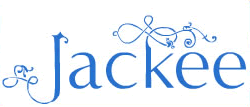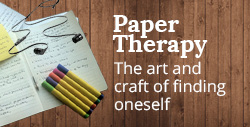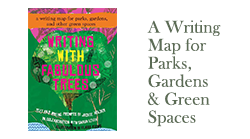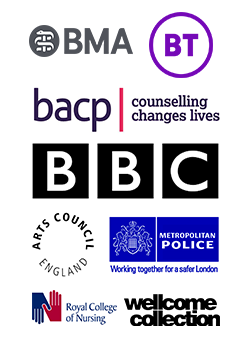Coaching
Thursday, July 9th, 2015
Foluke Taylor attended our Greece Writer’s retreat in June 2015 and took up the offer to share her experience here on the blog. It’s timely given what’s going on in Greece right now to recall the wonderful experience we had nestled into the mountainside of the great Mount Pelion for a whole week focused on our writing.
Foluke’s transformation during the week was like watching the eruption of Mount Pelion, she gave herself wholeheartedly over to her writing. Read her story in this week’s guest blog post.

Before I arrive at the writer’s retreat on Mount Pelion I think a lot about sun and sea and about how, once the morning workshops are over, I’m going to relax. I know it’s primarily a writing workshop but I refuse to feel guilty that writing isn’t at the top of my list. It’s been a tough year and I’ve survived. I deserve relaxation and that’s what I’m going to have. Once I’ve booked the trip, I develop a mantra to carry me through the weeks of waiting – Sun, sea, sleep. Sun, sea, sleep.
As the date gets nearer a handwritten card arrives from Jackee, the workshop leader. It’s decorated with butterflies. She asks me to let her know what I want from the retreat and to identify my specific writing goals. I send back my mantra (sun, sea, sleep) and because I don’t want her to think that I’m not taking this seriously, I add that I’d also be happy to write something as well. I’m careful not to say exactly what that something might be.
I give myself a pat on the back for managing expectations – for snapping some reins on those butterflies before they can get carried away. I sound cynical but know that in truth I’m just being realistic. Anyone expecting transformation in this situation is simply headed for disappointment. Transformation and disappointment are both on a long list of things that I’m way too tired for.
A few days prior to departure Jackee emails with last minute instructions and to suggest some writing practice in preparation for the retreat. My preparation involves throwing a bathing suit, sunglasses, flip flops and a couple of holiday reads into my suitcase and shaving my legs. I have my laptop with me, as a writer should, but inside I know that this is more about Netflix than anything else. I’ve yet to watch the new season of House of Cards. It’s not until I hit the departure lounge at Gatwick that I decide to pop into WH Smith and buy a notebook and pens.
Twenty four hours later and here I am, on the afternoon of day one, floating in the crystal clear waters of the Aegean Sea, gazing up at the mountain, soaking up the sunshine as planned. Suddenly I’m not tired anymore and I can think and all I can think about is writing. The first morning workshop has left me buzzing with ideas – what I want to write, what I need to write, how excited I am about writing it and when exactly I can get started. I feel like I need to start now.
So, that dip in the water ended up being my first and last, not because it wasn’t divine – it was, totally – but because another road to recovery had opened up before me. A road called writing myself back to life.
Each morning we’d wake up to birdsong, stunning views and a nourishing al fresco breakfast. Afterwards we’d come together in our writing circle and find that Jackee – the writer’s Mary Poppins – had pulled yet more, lovingly prepared materials and thoughtful activities from her bag. Our writerly selves received stimulation, nourishment and support in abundance. Where I’d imagined that I would be reluctant to ‘work’ and craving time on the beach, I found in fact that I relished the spaces to write, reflect and share. More importantly I found that, far from adding to my weariness, the process of writing energised me until I hardly recognised myself.

I wrote more in those six days than I had in the whole of the previous year and was especially delighted (and surprised) by what I was able to produce in the 24-hour period of the retreat during which we remained in silence.

I feel very blessed to have been a part of this retreat and I’m thrilled to be able to say that I’ve made significant progress with a writing project that had been stalled for some time. It’s part of this project that I would like to share here (thanks for the invitation Jackee) in a short story/chapter titled ‘The Stain’ you will find over at my blog here https://foluketaylor.wordpress.com/short-stories/the-stain/
The writer’s retreat dates set for 2016 ( June 3rd –June 10th 2016), are already ear marked in my diary. Thank you Jackee for channelling your experience, industry, humour and wisdom into such a wonderful week. I would recommend the retreat to anyone (and everyone), but a particular shout out to people who write or who think about writing or who like me, are sometimes too tired to think or write. I’d just like to add, in case you’re wondering, that the sunshine was also glorious.
Foluke Taylor is an Independent Social worker Counsellor/Psychotherapist BACP Accredited, DipSW and prolific writer who you’ll be hearing more from in the coming months.
Email foluketaylor@me.com
Contact: UK 07450 051 155
No Comments
Thursday, July 9th, 2015

Fire Well: How To Fire Staff So They Thank You For It, is a new book published today by Sue Ingram. I’ve had the pleasure over the years of working with Sue in our respective roles as coaches and coach trainers.
Sue was one of my first coaches here in the UK and since then has gone on to carve out a niche in supporting and inspiring teams with sustainable tools and techniques which help in making those difficult conversations easier.
Sue has written this week’s guest blog post answering a question I posed to her about sharing with us how a journal can help with having those difficult conversations in the first place.
I’m just heading off to Sue’s book launch this evening for the new book Fire Well: How To Fire Staff Well So They Thank You published by ReThink Press which shows how difficult conversations can be easy, straightforward and generous to complete. So I’m looking forward to having an actual print copy in my hand.
In the meantime why not have a read of what Sue has to say about how journaling can make the process of having those difficult conversations easier.
Difficult conversations are tough, be that at work, at home or in our friendships. And the name does help; difficult conversations. It sets the expectation that this conversation is going to be difficult to complete and difficult to gain a positive outcome.
However, I believe they’re not difficult. Sure, they take time to plan and you need to take care in delivery, but actually they’re essential conversations to hold for the health of our relationships, self-esteem and very soul.
They’re also generous conversations to give to others as often people are in the dark about the difficulties they are contributing to and certainly cannot change and improve without someone caring enough to hold the conversation with them. You could change their life for the better in many ways. And journaling is a very valuable tool to help us say what needs to be said.
For a start, if you journal every day you can look back over your entries and notice whether a relationship is in trouble. Is there a pattern of you feeling negative and irritated whenever you meet them? Are you repeating yourself about difficulties you’re experiencing? This is a strong sign that, although no big, isolated incident has occurred, there’s something significantly wrong that needs addressing.
The next is the value of writing out exactly how you feel about the situation and the person. No-one else will read this piece so you can be very open, free and explicit in what your actual feelings are. In fact it is very important that you are. Your writing may include swear words, accusations and some very hard things that you would never directly say to any person. But it is extremely beneficial to express all of these emotions out in the safe space of your journal. From your explosion of writing you will gain three things.
- One calmness and a distance to be able to assess the situation from the outside looking in, you may learn something new or be able to join dots together.
- The second is the essential truth that needs to be communicated, just put in better and more polite language.
- And the third is a one sentence statement that sums up how you truthfully feel regarding the situation. People can dispute facts and interpretations but they can not dispute how you feel. Also if you introduce feelings into a conversation it allows the other party to share how they might be feeling which could start to explain a lot of things.
For the best chance of a positive outcome from such a conversation it is important be calm and objective throughout. And journaling will help you maintain this grounded state, continue to reflect upon your feelings, the message you want to communicate and, lastly, the most important of all, the outcome you are wanting to achieve.
For the best chances of success this should to be a positive win-win outcome for you both, even it if is to end the relationship as amicably as possible. Define this and hold this in your mind throughout the conversation and your chances of achieving such an outcome are greatly increased.

Sue Ingram has spent over 27 years working in HR and related fields. In 2000 she became one of the UK’s first Executive Coaches; she is an Honorary Teaching Fellow at Lancaster University where her workshop forms part of their International MBA program.
Her workshop, How to Fire Staff so They Thank You has been delivered to over a 1000 managers in the both the private and public sectors. Her company Converse Well was created in 2010 in order to train and support managers in managing their difficult staff.
Sue Ingram
www.conversewell.com
sue@conversewell.com
+44 (0)7734 944515
No Comments
Saturday, July 4th, 2015

Earlier this week I attended a premier showing of the new Amy Winehouse film. I had no idea of what to expect and found the film tragic and yet a moving portrayal of Amy’s short life and the bitter sweet fame and success she did not live to enjoy. What we saw on camera was Amy in both her beauty and the ravages of inner turmoil.
The film leaves you with no doubt of Amy’s talent and gift as a singer and songwriter. But the roots of her unresolved childhood wounds leave her damaged and troubled. The issues around her mental health are eluded to have taken root in childhood with the viewer learning that she was on anti-depressants from a young age.
There is no doubt that emotionally and psychologically Amy did not get the right kind of emotional and psychological support she desperately needed as her career and fame kicked in. In Amy’s case what appears to be the root cause of the pain she carries seems to have been triggered by her father’s departure from the family as a result of an affair. She becomes a rebellious, strong willed young woman who gives her mother a hard time and goes onto to have Daddy issues throughout the rest of her life.
Amy makes poor choices with the men she has relationships with echoing signs of low self-esteem, co-dependency, unresolved issues with her father and her own deep trauma. Amy is very much the tortured but gifted artist. It is hard not to love and like this fragile, vulnerable and troubled young woman. It’s all there. The emotional fractures she carries are filled with increasing amounts of drugs and alcohol.
What becomes evident throughout the film is that Amy is not dealing with her pain she is holding it off. Watching the film I remembered something I had read where the US writer Anne Lamott http://www.salon.com/writer/anne_lamott/ gives advice to a writer who was physically abused by his mother as a child. The man is still carrying the wounds of having his hands burnt on the stove as a child by his mother. He asks Lamott how can he forgive his mother who is now a frail old woman. Lammott replies, ‘Use it she tells him.’ ‘She’s old though,’ he says, ‘Her life has not been a happy one.’
Lamott advises him to write about the experience but to change the family, change where they lived, change everything except the truth of the experience that when the little boy was naughty the mother held his hand to the flame. I can’t help but think if only Amy had been able to channel her pain differently?
It’s hard to believe that her father Mitch convinced his daughter in the early days not to go into rehab. She sings about this decision here https://www.youtube.com/watch?v=KUmZp8pR1uc Perhaps had she gone there in the early days of her growing fame we may have witnessed a different ending. I left watching the documentary feeling ambivalence about her father’s intention and how blind we can be to both our own pain and the pain of our loved ones.
I came away with deep respect and reverence for Winehouse’s song lyrics. This to me was the one place Amy attempted to begin the healing process. When signing her first record deal she tells her manager that she doesn’t write songs, she writes poems. It’s obvious that her song lyrics are deeply personal narratives charting her life experiences, the losses and the betrayals and I can’t help think if only someone had said to Amy, “Here, go on, use this journal to write it all out, the wounds, the warts and the wonders belong to the page.” Based on research that shows how keeping a journal can reduce stress, strengthen your immune system and improve moods and physical health and well-being.
Of course there might be complications for someone as famous as Winehouse keeping those words private and safe from those who surrounded her. Some of those around her may well have seized the opportunity to sell her journals to the press? And her depression may well have been too deep for words to penetrate and make a lasting impression. Who knows but nonetheless less I can’t help feel that keeping a journal would have been a good thing in the trajectory of a young life going rapidly downhill.
Young girls model themselves on artists like Winehouse and perhaps there’s still hope as recent USA market research found that 83 per cent of young women still keep a diary compared with 69 per cent in the 1990’s. The issue of mental health is a growing concern globally and here in the UK the cost of the UK society of mental health problems has been estimated at 98 million a year, greater than that of crime writes Ed Halliwell in the Be Mindful Report commissioned by the Mental Health Foundation.
I like many others ask the question whether taking drugs and alcohol halted Amy’s chances of healing? I think I know the answer. I like what Jane Fonda had to say in her Ted Talk, Life’s Third Act https://www.ted.com/talks/jane_fonda_life_s_third_act
“It’s not having experiences that make us wise, it’s reflecting on the experiences that we’ve had that make us wise. That helps us become whole, brings wisdom and authenticity. It helps us become what we might have been.”
Reading those lines and thinking about the film made me realise Amy really could have done with an older, wiser mentor who had the foresight to see into the bleakness of what she was really going through. Had she gone into rehab and committed to the difficult inner work of healing her demons she would have had a sponsor and counsellors who would have been on her side. There was a huge sense that this was a young girl left to cope emotionally on her own.
But when it comes to what would have helped Amy the answers are more complex and debatable. Perhaps the words of Graham Greene offer further food for thought who said, “Writing is a form of therapy. Sometimes I wonder how all those who do not write, compose or paint can manage to escape the madness, the melancholia, the panic and fear which is inherent in human condition.”
After all Amy Winehouse is not the first famous artist to suffer at the ravages of mental health, alcohol and drugs, think Jimmy Hendrix and Janis Joplin who were both the same age as Winehouse when they died. Her death was a tragedy and perhaps despite the complexity of mental health her life could have been saved for many more years to come.
The tag line for my work around journaling and therapeutic writing goes like this, Writing Changes Lives and Lives Are Changed By Writing. I know from personal experience that journaling has helped saved me big time from giving into the clutches of depression on a deeper scale. Whilst it has not saved me outright it has been a personal therapeutic activity I can use on a regular basis to self regulate my emotions and feelings.
If you have things on your mind or are finding life difficult to cope with reach out to many of the mental health organisations that exist in every area, speak to your doctor or a trusted family member or friend. And if your mental health issue is not too debilitating try keeping a journal.
You can download my free Journal Journey guidebook when you sign up on our free resources page on the website http://www.jackeeholder.com/sign-up/ It includes over seventy journal prompts and suggestions for what to write about in your journal. If you know someone experiencing mental health issues please feel free to share the free guide with them.
I’ll leave you with these final words from author and writer Laraine Herring from her book, Writing Begins With The Breath, “The writing outlasts jobs, partners and pets. The writing itself is the continuum of our lives.” http://laraineherring.com/writing-begins-with-the-breath/
Click here to watch Amy singing the haunting song, Love is a losing game https://www.youtube.com/watch?v=nMO5Ko_77Hk
No Comments
Tuesday, June 23rd, 2015

On my way into work this morning I wandered around the largely deserted cobbled streets around Borough Market at London Bridge.


I enjoyed pausing and clicking away on my iphone capturing colours and images offset through the huge net of my sensory imagination.
I see these early morning wanderings often placed at the start of a crowded day as my own kind of creative meditation. After all there are as many different ways to meditate as there are to tell a story.
Building creative encounters into my day has a number of benefits, all productive and useful.
- It clears my head.
- It’s calming and relaxing.
- Without even realizing it my stress lowers as does anxiety and worry.
- For around forty minutes I got lost in London city delighting in its architecture and all that it offered and gave myself breathing space.
Slowing down impacts on the quality of your thinking. These last few months have been very stressful, more than I care to admit. Taking time out in my day allows me to really see and take in my surroundings. It stimulates and ignites other creative portals. And again almost as a by-product this clear sight translates into other areas of life and work and allows you to see more clearly in those areas too.
This was the first image that captured my attention as I entered the market hall a blackboard posing this question … Before I die I want to …
This is a question well worth taking to your journal. I’d love to know what your answer to the question would be?
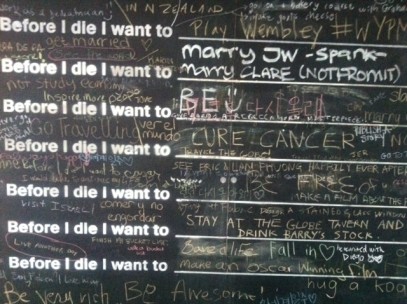
What follows is a series of organically snapped images taken as I wandered looking for an early morning quiet spot to write in.
I didn’t find a quiet spot, that seems to be like gold dust here in the city but I did manage to get a bit of quiet headspace before the morning commuters clogged the air space.

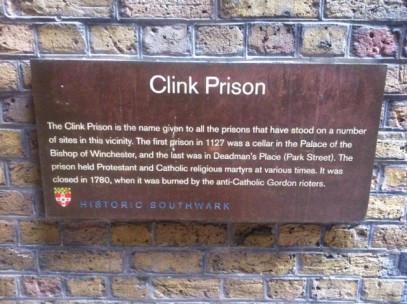



Feeding myself creatively in this way sets up my day in the best possible way. Things get done because of giving myself this time in this way.
If you would like to experience a spot of what it feels like to be a Slow Creative in the city come and join me and photographer Sarah Hickson http://www.nowliveevents.org/sarah-hickson/ at the Slow Creative workshop part of the Switch On Now Festival at Deptford Lounge a @nowliveevents on Wednesday 8th July 4pm-6pm.
To find out more about the Slow Creative workshop and to book click here (£6 full price/£4 Concessions/Deptford Residents £3): http://www.nowliveevents.org/deptford-lounge-2015/
Tweet #Creativity #SwitchonNOW @Deptford Lounge @nowliveevents

No Comments
Sunday, June 14th, 2015
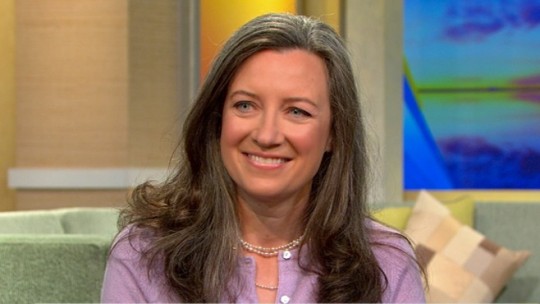
I’ve just listened to this podcast interview with Dominique Browning former editor-in-chief of House & Garden magazine on the Debbie Millman, Design Matters podcast series and her words really resonated with me.
The entire interview reinforced why the message in my work as a coach and trainer working with leaders and coaches I go on and on about finding quiet pockets in our day to get still so you can connect in with you. I know this sometimes comes across as soft and fluffy but really it isn’t. Slowing down and becoming more mindful really is a serious antidote to depression, to stress, to combating mental health issues and burnout to finding a way of working and living that is based on wholeheartedness, that is meaningful and a gateway to productivity.
It’s why I continue to communicate this message over and over again with coaches and leaders I work with even when I get the look like ‘really’, or ‘this is so boring, tell me stuff I can do that is quick and will fix my problems now.’ It still surprises me just how many coaches, leaders, executives and professionals across a range of industries who work with people find it difficult to look within and resist working consciously and pro-actively on their own inner lives.
Finding those small pockets in my day whether I am writing in my journal, going for a walk or sitting quietly in my car for a few minutes before my next appointment helps me tremendously. This approach personally marks the difference between surviving and thriving. It can be so easy to thread water through our day multi tasking and going at a break neck speed. In my world stopping in this way is a form of healthy insulation, a welcome breathing space allowing me to absorb and respond without being knocked for six when the inevitable challenges, dramas and dilemma’s present themselves.
Here’s what Dominique had to say in the interview with Debbie Millman,
“You can get an enormous amount of nurturing out of connecting with the world around you in small moments throughout everyday and I began I realize that even as my life was beginning to speed up again I needed to carve out a few minutes of just meditative times for myself. When I would just connect with something beautiful, interesting, troubling, whatever it was but something everyday that made me stop and think and be very, very still.”
Listen to the full interview here: https://soundcloud.com/designmatters/design-matters-with-debbie-105
Dominique Browning former editor in-chief of House & Garden in an interview with Debbie Millman from Design Matters discussing slowing down and her life after House and Garden magazine closed down and she lost her job as editor-in-chief.
Dominique Browning is the author of Slow Love: How I Lost My Job, Put On My Pajamas & Found Happiness and blogs at: http://www.slowlovelife.com/
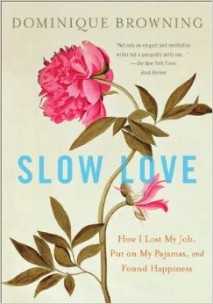
No Comments
Tuesday, May 19th, 2015

Last weekend ended with a social engagement on the Sunday evening, which even though I enjoyed catching up with old friends sapped my energy leaving me desperate for some me time.
By the time I hit the sack I knew I needed to recharge my batteries. My job the next morning began at 9.30am so before falling asleep I planned to get up extra early the next day so I could head over to one of my favourite green spaces in London, Richmond Park. The weather the next morning was nothing to write home about but I didn’t let that put me off and by the time I pulled up in the car park it was raining with a crisp breeze that pelted cold air on your face.
Still determined I pulled on my wellingtons, wrapped up and strode off for my morning walk. With no heavy bag on my shoulder and just my iPhone in my coat pocket I suddenly felt remarkably free.
I headed off in the opposite direction of the school run traffic streaming through the park which I needed to get as afar away as was possible, which is the park’s one only un-redeemable feature. The wind howled and the sharp crisp air pelting across my face suddenly felt comforting, my own call of the wild.
In the distance I spotted a tree off the beaten track housing what looked like a hollowed out bark and headed over to investigate. It was a wonderful specimen, maybe a hundred or more years old. My iPhone sparkled as I took images of inside the trunk. Some of those images resembled hill top terrains. Take a look at the image below to see what I mean.

Nature therapy is available and free. My morning dose of nature therapy had immediate effect in re-energising my diminishing energy reserves.
For the next 45 minutes I sauntered across the green plains of the park stopping to commune and take photo’s of various trees. By the time I realised just how much I was enjoying myself I had only thirty minutes left to get back to my appointment but Oh, I felt delicious.
Back in my car a quick glance in the car mirror reflected back a face with blushed cheeks that had clearly benefitted from a free, natural non-surgical procedure. I’d been injected with a huge dose of energy.
The next day was yet another early start but at least one where I could get a seat on London’s heaving packed rush hour traffic. Before leaving home I’d popped two decorated luggage tags into my journal. Then on the train I pulled one out and on one side I wrote across the top, three things I intend to get done for the day. This really helped me prioritise for the day in a way that felt light and easy.
On the other side of the luggage tag I wrote across the top, three good things about yesterday. I then proceeded to answer both questions writing my answers directly onto the tags.
Things started off well with question one but by question two I began frantically scanning the day trying to recall the best bits of the day. I mean anything and to my surprise found myself struggling. By item three I’d drawn a blank. Yes in less than twenty-four hours I had forgotten about my wonderful time in Richmond Park.
That’s why writing things down makes a difference. Writing it down brought the experience back into focus and made me in the moment instantly happier. Remembering my time and most importantly recording it felt like I had retrieved something of value from my past.
Most people are familiar with the practice of writing a Gratitude journal and more recently the Five Minute Journal click here for more information http://www.fiveminutejournal.com/ has condensed this practice in their product the 5 Minute Journal.
Years earlier I’d introduced a similar practice, 7-minutes of spiritual grace writing practice to groups I worked with. The idea behind it was once you set yourself an achievable goal of writing for 7-minutes you’ll probably without even realising it write for even longer.
The reason I’m sharing all this with you is because I know how busy you are. Most people just can’t imagine where they’ll find the time to get through even a quarter of their to do list let alone write a journal.
But wait a minute? How many of your priorities get compromised at expense of the things we love or are important to us as we fritter away valuable hours checking social media and playing on our mobile phones. Both the five and seven minute practices are practical and fast ways to gain the many benefits of journaling and being reflective.
For example a 2012 study found that women who wrote down three positive events and the reasons why they were positive experienced a reduction in physical complaints such as headaches, back pain and muscle tension.
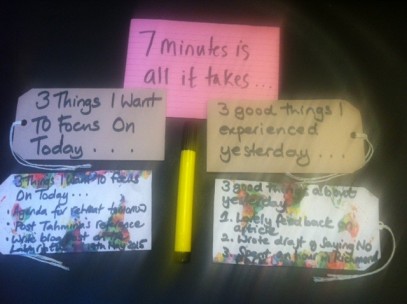
For the next seven days how about trying out the fast track, seven-minute journal writing practice to discover how it works.
Here’s how it works:
Writing materials needed:
- Collect seven luggage tags or seven small slips of paper or use your journal or notebook. It’s a good idea to try writing on a luggage tag because it breaks the cycle of writing for work and feels a lot lighter and fun.
- Date each luggage tag on one side for future reference.
- Each day for the next seven days on one side of your luggage tag write three good things that happened the previous day.
- Next on the other side write down three things you’d like to get done today. It’s common for individuals to find that they end completing a different activity than the one originally entered on their list. But they also find that what gets done is better than the original intentions.
- The second thing that turned out to be a bonus is that without making an effort people find themselves continuing to write after the seven minutes is up. It’s a great way of bypassing writers block and a lack of confidence.
- This practice of short writing bursts is a smart way of outwitting the inner critic who often considers short writing periods insignificant which means the inner critic is likely to be off duty and less likely to show up.
Remember the journey of a thousand miles begins with the first step. Let’s build a journaling revolution one line at a time as a base line for becoming a writer and growing your business!
If you’re ready to try this out or interested in learning lots more about how to become a writer then there’s still time to join me and a small group of writers at the Inside Out Writer’s Retreat I’ll leading in Greece in ten days time. Click here for more details: http://www.alexandros-kalikalos.com/creative-writing-greece
No Comments
Friday, April 10th, 2015

Recently I was invited to offer my resignation from a board I had served on a voluntary basis for several years. I had been planning my exit for months but was still hanging in there despite several of my close and trusted colleagues advising me it was time to leave.
A newly appointed chair (voted in during my absence at one of the board meetings) had taken over the reins and had decided along with other board members that the services of myself and two other members of the board were no longer required.
They had a point, to an extent but from my perspective the way the letting go was done was shabby. For years I have been bringing up the shadow themes about our board, pointing out the toxic dynamics in our relationships and overall management of the paid staff team. My ideas and suggestions had repeatedly fallen on deaf ears. And in one way it seemed unfair that someone new was given air space, showered with respect in a way that contradicted my experience of increasingly feeling I often felt overlooked and ignored. There were other factors I could mention but that would really be taking me off the point.
What was most important was the recognition on my part that there was something different about me at that last board meeting. I sat in my chair with an open heart knowing a storm was brewing up around me. I had arrived with an inner knowing that had been revealed to me in my journal entries several months before. The message that came through my words scattered throughout the various journal entries was repetitive and clear.
I was no longer enjoying my time on the board. I loved other parts of my work and time with the organisation but membership on the board felt draining and depleting. Every morning before the board meeting a slow sense of dread would fill me and my body signals could not have been clearer about signaling its dis-content as I pushed myself to sit and be with individuals I had little in common with and for whom I felt little or no connection to.
On many levels even though I knew the truth (and my journal entries evidenced this), and the body signals were loud and clear, I didn’t fully listen to my own inner wisdom. Part of me is forever hopeful, which sometimes works out and other times it doesn’t. But even so as I sat and listened to the request I realized that in that moment, I was ready, that it was the right thing to do and that by leaving I was creating the space for something new and better.
The thing is, bad things happen to good people every second of our waking lives. The people and innocent children on the recent French plane allegedly bought down by its co-pilot were I imagine all ‘good people’. The reality is as much as we would like to we really fully protect ourselves from injustice or unfair treatment we cannot fully insulate ourselves or our lives from bad things happening to us. But what we do have to hand is a choice about how we choose to respond.
Recently, the school someone close to me taught at for many years and where she was in a senior leadership position (and was a brilliant assistant head) was taken over by a young, ambitious super head. Suddenly her career and the careers of several other individuals in the school who spoke out against many of his decisions and actions were jeopardized and with the click of a finger these stunning teachers were either forced to leave the school or left of their own accord because they could not stand for what was going on any more.
The episode prompted many of the group to re-evaluate their lives and careers. Relationships have been deepened with loved ones. Many of the group discovered whom they could turn to during the difficult times that followed. They learnt amongst many things that there was life beyond the career and the school they were forced to leave or quit. Each one of them in their own resilient way bounced back.
It struck me that when these tough times call, and call they will what is most valuable is not that we try and shield ourselves from what is happening. Our most valuable weapon to pull us through is in fact resilience.
Resilience is the ability to adapt and respond well in the face of stress and adversity. I’ve learnt both from personal experience and from many of the individuals and groups I work with that a potent surge in creativity and inspiration is often close behind periods of loss, trauma and adversity in our lives.
If you would like time out to think about your life right now and where your resilience may be called for, or perhaps you have just lived through a life or career challenge, then have a listen to an interview with with one of the world leading experts on resilience, Mark Matousek. Click here to listen
In the interview Mark discusses his take on resilience and adversity. Discover what he’s learned about resilience from the many people he’s interviewed on his website and in his book, When You’re Falling Dive. Listen out for tips on what gets you back on your feet after you’ve been knocked down and how trauma, crisis and loss are spiritual opportunities for us to evolve into richer human beings.
If you want to take this work further or perhaps you work as a practitioner and would value more learning and training in this area then Mark will be in the UK at the end of May teaching a three-day intensive, When You’re Falling Dive course at the wonderful Schumacher College in Devon, May 26th-May 29th
Click here for more details of the course
I’ve worked with Mark before and know that his work is deeply transformative and offers both a psychological and spiritual approach to building and nurturing resilience in our lives using therapeutic writing.
No Comments
Thursday, March 5th, 2015

To have greater self-awareness or understanding means to have a better grasp of reality. - Dalai Lama
When I was growing up I had a strong feeling even though I could not put words to it back then that emotional intelligence (mu common sense and intuition) served me much more effectively than the highly regarded cognitive IQ. As a young child I saw things in my family and my environment that I just knew weren’t right and I spoke out against it. It didn’t always go down well.
My parents were delighted when I received a place at a sought after girls grammar school in our local area. But my school, which had a strong focus on academia only served to stifle my creativity and at the age of sixteen I failed most of my GCSE’s even though I loved learning and was a model student.
That was a pivotal moment in my young life. Faced with the option of staying on at school and the reality of being forced down the route of a secretarial course or re-sitting my GCSE’s I made a very conscious and clear decision I’ve never regretted. I set my sights on college, leaving behind five years of solid friendship and a comfort zone of familiarity for the unknown territory of college. I knew in my bones that I needed a new challenge, that staying on at school would not be right for me even though I was going against the norm of the path girls followed at our school.
At college enrollment I came head to head with the Head of A’ Levels with my mother in tow (parents very rarely turned up for their children to enroll at college). He took one look at me, told me I could re-sit some of my GCSE’s, add in some new one’s and start my A’ Levels all at the same time. The combination of a stretch and his clear belief in me was all I needed to extend myself into a new place of growth and development. Within the space of two years I had five GCSE’s under my belt, achieved two A’ Level’s and once I had achieved all of those left to attend a new college where I added two more A’ Levels to my list.
But this story is not about the qualifications per se but about my ability to draw on my own self-awareness at a young age and knowing and trusting what was right for me and, what things went against the values I was slowly forming from my life experiences and view of the world. It was the beginning of the roots of the formation of my own emotional intelligence made famous in the early 1990’s by the then science journalist now psychologist Daniel Goleman.
Turns out that IQ was not the greatest indicator of personal and leadership success or job performance. Research indicated around that time was that IQ contributed 25 per cent to career success. Turns out that IQ on it’s own was not enough and emotional intelligence (EQ – Emotional Quotient) had a far greater impact on the realisation of real authentic.
Even though Goleman is the name most strongly associated with the introduction of emotional intelligence to the masses much of the work around emotional intelligence was previously pioneered by researchers and scientists like Peter Salovey and John D. Mayer Richard Boyatzis, Paul Brown and Gardner’s work on Multiple Intelligences. But it was Goleman’s book ‘Emotional Intelligence’ (1995) that caught the attention of the masses.
Over the years through my own personal practice I discovered through the combination of journal writing and reflective writing how both methods which I use to explore my work and my personal life have been strong advocates of strengthening and cultivating emotional intelligence capabilities and are both approaches that can be used for individuals to personally take responsibility for developing and developing strong foundations in emotional intelligence. The practice of conscious writing and reflection relates strongly to the six areas often identified as the key indicators of the formation of emotional intelligence.
Goleman’s four main areas of emotional intelligence are:
- Self-Awareness
- Awareness of self and others
- Social skills
- Self-Management
Here are some of the ways in which I believe journaling and reflective writing connects with the four development areas of emotional intelligence.
Self-Awareness
Journaling and reflective writing allows you to be aware of your own thoughts and feelings and be in a better position to manage and handle stress. It is a safe, self-directed space to express and unravel emotions and helps determine when and how to express emotions beyond journaling and reflective writing. Goleman believes all change start here with self-awareness. Journaling or writing reflectively gives you a higher degree of self-awareness and understanding of your strengths and weaknesses.
Ways to connect your journal and reflective writing to EQ:
- Write about your feelings in your journal or reflective notes.
- Are your feelings congruent with your reactions and behaviours?
- Make a list of your strengths and limitations.
- How can you build on your strengths?
Awareness of Self and Others
By journaling and reflecting on your work, how you do things, your relationships with others you are laying them down in writing for examination and exploration. Your journal and reflective writing notes are a way of you individually taking responsibility for understanding how your emotions and feelings impact others and understanding how others maybe emotionally feeling.
Before making a rash decision or not thought through decision you can use your writing to slow you down and listen to your own wise counsel. This helps to cultivate better decision-making skills and cultivate healthier relationships with others. It’s a healthy way of processing and releasing conflicts, frustrations and the difficult and more complex dynamics of relationships with others.
Ways to connect your journal and reflective writing to EQ:
- Make a list of all your different roles at work and in your personal life.
- How do you feel about each role?
- What works?
- What doesn’t work?
- What would you like to change
Social Skills
Social skills are about developing empathy, your understanding of the organizational politics and understanding the needs of colleagues, staff, clients and customers.
Ways to connect your journal and reflective writing to EQ:
- Draw up an inventory of your main relationships at home and at work?
- How well do you listen to each person on your list?
- How would you rate the quality of your interactions and communication with each person on your list?
- What is my body language like when you’re communicating with each individual?
- How would you like to improve or progress your relationship with each person on your list?
- What would this require for you to do more or to do differently?
- How willing are you to do this?
Self-Management
Journaling and writing reflective notes is a form of self-organizing on the page. The practice of intentional writing in this way can help identify what you think, notice what you feel and decide on how you will respond. It’s also about your response to others, how you work flexibly with others and how you maintain positivity.
- When was the last time you had an impulsive emotional reaction?
- What was the impact?
- If the impact was negative – What would you do differently next time?
- If the impact was positive – What would you do more of next time?
- If the impact made a difference – What would stay the same?
I have over twenty years of journaling under my belt and a long history of reflective practice. Emotional intelligence is an area of personal and professional development you can take personal responsibility for at very little cost that has huge rewards. The leaders of the future (in all fields and professions) need to be fit for purpose. It is no longer enough to rely solely on your cognitive expertise and knowledge.
A study in the 1950’s of 80 Ph.D.’s in science who underwent a series of personality tests, IQ tests, and interviews when they were graduate students at Berkeley. Forty years later, when they were in their early seventies, they were tracked down and estimates were made of their success based on resumes, evaluations by experts in their own fields, and sources like American Men and Women of Science. It turned out that social and emotional abilities were four times more important than IQ in determining professional success and prestige.
- How can you ensure your IQ is balanced with your EQ and that they work in partnership and collaboration?
Journal and reflective writing can be boosted hugely by investing in other learning modalities to build on your EQ capabilities. Why not try one of these free on line EQ courses to find out more about your EQ type. Become curious about your feedback. Ask yourself questions that will support you to build on the findings. It is not the whole truth. Everyone has the potential to grow and shift.
Free EQ Tests
University Of Warwick
http://www2.warwick.ac.uk/services/ldc/courses/sdl/the_practical_eq_emotional_
intelligence_test_-_2-10-12.pdf
Institute For Human Potential
http://www.ihhp.com/free-eq-quiz/
MEIT Free EI Test
http://www.maetrix.com.au/meit/eitest.html
Central Test
http://www.centraltest.com/ct_us/article-emotionnal-intelligence.php
Have fun with it all. If you would like to experience a fun, experiential journal writing workshop then join me next Wednesday March 11th at the Paper Therapy: Writing To Grow and Thrive event at 7pm (Psychologies Magazine and Now Live Events)
More details here:
http://www.nowliveevents.org/events/
https://psychologies.co.uk/paper-therapy-writing-grow-and-thrive
No Comments
Friday, January 2nd, 2015

Photo of Einstein’s Office
Welcome to the first of my 5 part mini series on – What You Need in 2015 is not more time but more energy.
What is the number one commodity you believe will help give you the success you deserve in 2015 to be productive and live a more meaningful life? What if I told you that what you need more of in 2015 is not more time but more energy.
Time management courses are a waste of time if they don’t focus on this one often missing criteria – energy. Increasing the amount of energy you have access to as you go about your daily activities will transform your relationship with time.
On New Years Eve I sat and reviewed the goals I had planned the same time last year. It was very affirming ticking things off the list and recognising how many of the items on my list had actually manifested. Even better were the unexpected surprises and achievements, things that happened that were far better than I had intended for myself. Like the award for an article I wrote, the wonderful partnerships and collaborations with people I had not factored in and the connections I could not have planned to make happen even if I had tried. But still there was a nagging feeling I couldn’t shake off as I worked down my list. I couldn’t shake off the feeling that several items on the list could have been realised if I had not more time but more energy.
When I first came into contact with coaching in the late 1980’s one of the first coaching tools I was introduced to was the principle of eliminating your tolerations. Tolerations referred to people, objects, habits or practices in your day-to-day life that either slowed you down or drained your energy.
After all energy is one of your most valuable commodities. According to Tony Schwartz, CEO of the energy project whose work I have found really helpful it is best to take on the most important and difficult tasks when we have the most energy. But most of us never get to this point because either we don’t have the time or the energy even when time becomes available.
In my case when I reflected on the tolerations that resulted in a continual rapid loss of energy throughout the year I identified an un-healthy personal relationship dynamic, episodes of unhealthy eating habits, an embroilment in a lengthy, toxic drama as a named trustee on a friends estate that involved multiple, difficult and antagonistic relationships that had drained the life force out of me. To be blunt in 2014 I had experienced a complete zap of my energy both psychologically, emotionally, physically and spiritually so it was remarkable that I had achieved anything at all.
But despite all of the above I had achieved and I was astute enough to recognise that even so there was a considerable cost to allowing certain dynamics to continue to play out in my life that was contributing to a significant withdrawal of energy that I could have been putting to much better use.
This five part mini series will help you identify the things that drain your energy levels, put in place activities, systems and people who top up your energy levels, explore how to change your relationship and perspective with time and discover the projects and activities you want to focus on in 2015 so you can use your energy more resourcefully and strategically.
We’ll start today by looking at and working on eliminating your tolerations.
Make a list of the main areas of your life where you would like to eliminate your major and minor tolerations. Here are some suggested categories to get you started.
- Relationships
- Home environment
- Nutrition & Eating Habits
- Unhealthy habits and practices
Think about areas of your life you ignore or feel frustrated about (the piles of paper in my office), the people who when they come to mind or you see or hear their name called or their name pops up on your phone, actually dips your energy (relationships), items that are faulty or don’t work (home or work environment), habits and practices that are depleting (health and well-being).
Next make a list of all of the tolerations you are putting up with under each of the categories. These could be big (a relationship) to smaller items like the broken oven door.
Now decide on the first small step you will take to reduce or completely get rid of the negative or draining impact of each of the tolerations on your list. Remember it may take several small steps before the toleration is fully eliminated.
It’s important to write the step down and an intended date of when you will have completed the action. This does not need to be the actual date you complete the action on but a date for when you would like to have the action completed by. We’re more likely to complete a task when it’s scheduled in.
Getting rid of your tolerations over a period of time is one of the first steps in harmonising your goal setting. You’ll find as you get stuck in that you’ll experience a satisfying release of stuck energy.
Consider this as essential work of cleaning up your roots first and laying down healthy foundations as a natural way of holistically increasing your energy levels. Think about how much of your energy and time is consumed looking for things, compensating for things not working properly and absorbing the negativity of relationships that have an unproductive impact on your performance and productivity. By reducing the number of tolerations playing out in your life you’ll have more energy available to focus on your goals and aspirations for 2015.
Tomorrow we’ll look at once you’ve generated more energy what and how you will focus it so your new found energy works best for you.
No Comments
Wednesday, December 31st, 2014

Yesterday I received a great email from a reader who asked me the following two questions:
Question 1
How often do you recommend journaling? I have written in journals in the past but felt my writings were becoming mundane especially if I wrote daily when living a life that – well – wasn’t very eventful!
Question 2
I created a blog about two years ago and have had some fairly successful posts. Readers have encouraged me to write more. My dilemma is similar to my journaling one – What do I write about? I am always waiting for an inspirational event but I fear losing readers in the time lapse.
It was the kind of email I would get out of bed at 4am to answer. Luckily I clocked it at a decent hour to get up and immediately wrote a response. As I wrote my response I felt a bit like the poet Rainer Marie Rilke writing in the book Letters To A Young Poet who seeks his wise counsel. I had no idea of the age of my reader but the advice is applicable to all ages.
I was so inspired by these two questions that it felt right to turn this into a blog post and share with a wider audience. This is a common challenge for many people and with the new year only hours away I’ll shed some light on how to rise above this journaling challenge in the new year. So here goes.
How often to write in your journal is debatable and not fixed
There is no right or wrong way to keep a journal. Everyone will have their own journaling relationship and my journal writing habits have varied over the years. Overall I write in my journal at least five times a week. I have been doing so for over twenty-five years and it is now a fully ingrained habit. Trust your own rhythm and flow. If it’s weekly then allow that to become your rhythm.
Benefits of Journaling
I feel undone when I don’t write in my journal. It helps me to think better, clarify my thoughts and process ideas, work and writing projects. It’s a way I manage my stress and anxiety that I recently began suffering from. There’s so much research on the benefits of journal writing just check out my book 49 Ways To Write Yourself Well http://www.amazon.co.uk/s/ref=nb_sb_noss_1/278-5472456-6835842?url=search-alias%3Daps&field-keywords=49%20Ways%20To%20Write%20Yourself%20Well
It’s packed with journal writing prompts and exercises of things to write about.
What To Write About
My journal jottings are a combination of personal feelings and emotions, reflections on experiences and activities that happen during my day or the week, shopping and to do lists and is a place where I write drafts for projects, articles you name it. I also write down quotes and poems that inspire me as I come across them in my journal and I also stick down images and what I refer to as Visual writing prompts http://www.jackeeholder.com/writers/visual-writing-prompts/
I write and publish loads of articles and blog posts about journaling on the internet and I love it. It’s become my niche simply by following my passion and keen interest in journaling. I’m curious about what it is you love or have a deep interest in?
Keep writing and the writing will lead you. It’s like going on a walk. You never know what you will discover. Writing is both a mystery and an oracle of revelation.
Anyway I bet you don’t lead an uneventful life. Your writing will uncover much that is hidden deep inside you and if your life really does feel uneventful writing will help you discover what would give your life more sparkle. I write a lot about the ordinary moments in life and not just about the drama’s and the heart aches.
My journal is literally a workbook of my inner and outer life all in one place. It is so much more than who people think I am and how I present and share myself. It’s a documentation of the real me where I am the author.
Different Types Of Journals
In the past I’ve kept a separate journal for my business as a writer and a coach and that worked really well. Only problem was my bag got too heavy with carrying around too many books so I retreated back to one journal! I’m finally appreciating the vast possibilities and creative digital journaling apps that are available too. I find writing in different mediums stimulating.
One Word Journal Entries
Sometimes life is way too stressful and I can only manage one word or a few sentences in my journal. These to me are still valid and valuable journal entries that I often go back to and flesh out at a later date. So much can be captured and expressed in one word.
Writing Prompts
I use writing prompts a lot as a way of coaxing my inner writer onto the page. I often feel before I start writing that I don’t have anything to say but I am always surprised and amazed by what emerges once I get going with a writing prompt.
To help bypass this challenge of what to write about I created the Journal Journey Guidebook that contains over 100 journaling prompts and quotes. You’ll always have things to write about now.
Download your free copy here
http://www.jackeeholder.com/wpcontent/uploads/2014/01/
Journal_Journey_Guidebook_January_2014_small_version.pdf
The New Year is a great time to recharge and refresh your journal writing so I created a list of New Year writing prompts to kick start your journal writing in 2015. Here’s the link http://www.jackeeholder.com/coaching/handmade-new-year-journal-prompts/
You can also listen to this podcast interview where I am a featured guest on the panel discussion on Looking Back and Looking Forward and sign up for the Journal Kit to look back and look forward in your journal for the New Year
https://iajworg.leadpages.net/lblf-journaling-kit/
Blogging
I think it is great that you’ve been receiving positive comments on your blog. I decided to turn off the comments on my blog and focus on producing content. Again I am amazed at how many people do read what I write as they email me at my website.
To have people comment and encourage you at this early stage is a great affirmation and sign to keep producing. I don’t think we ever know what blogs will move our readers. I believe ultimately our job, as the writer is to simply show up. But I have noticed how fulfilling I find it when I finish and upload a post how that builds my self -esteem and inner confidence as a writer and this is where the juice lies. Explore these questions in your journal:
- How do you feel about the process of writing?
- What inspires you to write?
- What topics do people comment on most on your blog?
- If you were given an exclusive book deal to write a book what would you write about?
- Set a timer for 5 minutes and make a list of every and anything you’d love to write about.
Journal Everywhere
I do take my journal everywhere so I am never lost for things to write about. On social occasions I write on notes on my iphone. I write on public transport, parked up in my car, waiting in-between appointments. Nowhere is off limits for writing. I wrote my response to you parked up in my car as I was waiting for my favourite café to open this morning. When I write in café’s it doesn’t feel like I’m working and my inner critic goes to sleep with boredom.
- Where do you like to write?
- Where else could you be using as a writing space?
- What inspires you?
Nearly finished…
Recommended Journal Writing Books
I have hundreds of writing books in my book collection that have become my writing mentors. Here are a few of my recommendations http://www.jackeeholder.com/coaching/gift-someone-a-blank-journal-this-christmas/
I would recommend adding two or three from the list to your personal collection that you can turn to for writing inspiration and motivation when you feel stuck. I find the books on the list so helpful.
Sexy, Sacred Journal Writing
Finally why not join me for my six-week online journal writing class
http://www.jackeeholder.com/events/sexy-sacred-journal-writing-online-course/where you will dive into the wonderful and rich world of journal writing and getting to know yourself intimately and creatively.
I send out three lessons each week, which you can complete at your own pace. There is no hurry with this class. Just move along at your own pace.
Every Friday I share a video interview with a journal expert. Feedback from this video series has been excellent. You are free to keep the experience on the course private or you can share as you go through the course with other on our course discussion forum.
Each lesson gives you a series of prompts and activities to explore in your journal. This course will also inspire and contribute to other things you want to write
We have a 2-4-1 offer at the moment so you can also gift a friend a place on the course. The course starts on January 5th so there’s still time to sign up.
Would be really lovely to have you join us.
Hope this all helps. You seem ripe for a year of unravelling on the pages of your journal.
Sending you seasons well writing wishes.
Warmly.
Jackee
I hope my response also inspires you with your journaling and blogging in the new year.
We’d also love your company on Sexy, Sacred Journal Writing course.
Treat yourself and a friend to a surprise new year gift in our special 2-4-1 offer of £57
http://www.jackeeholder.com/events/sexy-sacred-journal-writing-online-course/
No Comments



